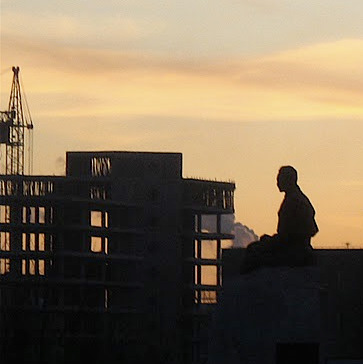 |
|
|
|
Tumenulzii Bayunmend is Inner Mongolia’s most famous writer. Never heard of him? I hadn’t either, and that is part of the problem.
Tumen, the name Luce Scholar and advocate Ming Holden uses to refer to her friend, is a political dissident and refugee from China. He has spent the last five years in a small apartment in Ulanbaataar, isolated from his wife and daughter who still live in China, fearing every moment that the Chinese government will abduct him in the night and imprison him in an undisclosed location for the rest of his life. On one of the few occasions his wife was able to visit him, she was strip searched at the border.
Ming Holden is a 25 year old blond from Southern California with a heart-shaped face, sky blue eyes and slim figure. She earned her degree in creative writing from Brown University and was accepted as a Luce Scholar in 2007, a fellowship more selective than the better known Rhodes scholarship.
She may sound like an unlikely advocate for a Chinese political dissident, but that is the point of the Luce Fellowship program: to create a bridge between promising young Americans and leaders in Asia from a variety of fields. In addition to her Fellowship in Mongolia where she would work as the International Relations Advisor for the Mongolian Writers Union, Ming proposed helping the Union to create a PEN center in Ulaanbaatar.
“Normally, a PEN Center in a place like Mongolia – a place where political dissidents flee to – would be where refugee writers go for help to safely resettle in Canada, or America, or Sweden. PEN helps writers like Salman Rushdie when their writing puts them in danger.”
Shortly after Ming arrived in Ulaanbaatar, an exiled Mongolian writer in New York City asked her to meet with Mr. Tumenulzii Bayunmend, another writer exiled from the Chinese territory of Inner Mongolia.
“Tumen became like my Mongolian dad, even though we had few words in common.” They bonded over pizza and beer; Tumen telling her about his life, his family, the police raids on his home before he left China, and comforting her about her recent break-up with her boyfriend.
CRIME AND PUNISHMENT
Tumenulzii’s crime was to write about the deliberate erosion of Inner Mongolian culture by the Chinese government. He told Ming that before he studied in Japan for a few years, he was like any Inner Mongolian – accepting the situation without thinking. But after learning about China’s dealings with Mongolia from a distant and unedited perspective, his mind opened to the world. When he told her this, Ming says, “He put his fist to his forehead and opened it up to the sky.”
Tensions between the Chinese and the ethnic Mongolian minority quickly turned dangerous in Inner Mongolia, a state under Chinese dominion. In April 2010, a Mongolian activist who promoted the rights of ethnic Mongolians in China was taken away while waiting for his flight to New York in the Beijing airport. He was on his way to participate at a UN meeting. Political dissidents are in constant danger in and around China, including Ulaanbaatar.
After months of communication and visits to the UN alongside Tumen, Ming was able to get him official refugee status in 2008 with the help of PEN Freedom to Write. They assumed that within months he would be resettled with his family.
“He’s on every waitlist known to man, but he is still there in Mongolia, still in danger. It’s an insanely bureaucratic process to relocate a political dissident.”
Ming continues to write Tumen’s story for any and every publication that will publish it, with the hope that if his name is recognizable and his situation is known, he won’t be so easy for the Chinese government to make disappear.
“If enough people know about human rights abuse, it will change. The Chinese government doesn’t want to be seen in a negative light. If enough people know about Tumenulzii and he disappears one night, the hope is that the outcry will have an effect on human rights abuses. It’s one of the few times when writing actually has a chance to improve the world.”
Ming Holden now has an opportunity to bring Tumenulzii’s story into the media spotlight. Her proposal to speak at the second ever Writers and Literary Translators International Congress (WALTIC) being held this year in Istanbul was accepted. She will probably be the youngest presenter there.
“The fact that they chose my abstract at this Congress means they are interested in bringing attention to Tumen’s story. It’s huge.”
Ming’s story might not immediately relocate him to Canada, but it could speed up the process to rejoin Tumenulzii and his family in safety, where he can continue to advocate for Inner Mongolian rights without fearing for his life.
Even though Ming’s proposal was accepted and she has been invited to speak at WALTIC, traveling to Istanbul presents a problem. The money to buy the round-trip plane ticket isn’t there; neither is money for the most basic hotel room, though Ming says couch-surfing is an option. The trip is an estimated cost of $2,063.
By helping her to reach the broad international audience at WALTIC, we can help protect against human rights violations and, hopefully, reunite a very brave family.
If you would like to contribute funds towards getting Ming to the Writers and Literary Translators International Congress in Istanbul, you can make a donation on her official page: Freedom to Write: Spreading the Word on Exiled Dissident Writers.
To do my part, I’m sending her the money I get from writing this article.







